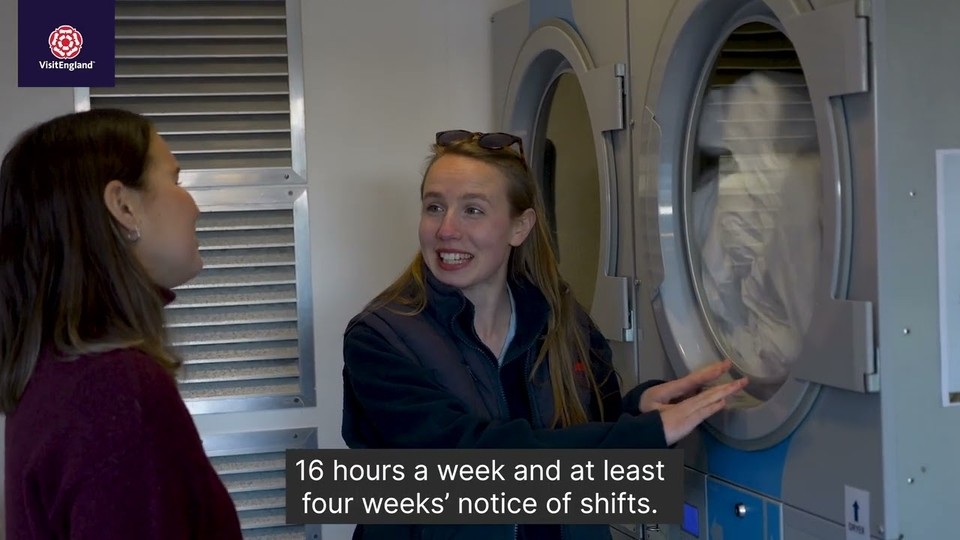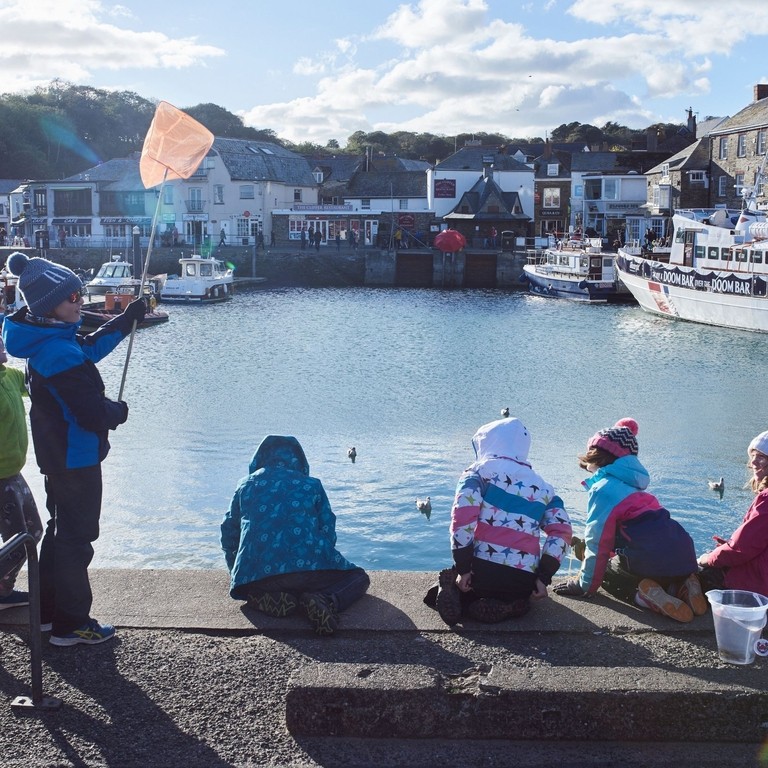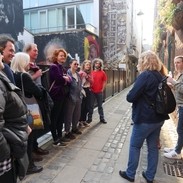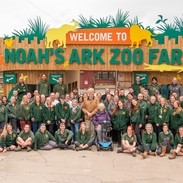Better Business case study: Mother Ivey's Bay
Photo by: VisitBritain/Diensen Pamben

Better Business case study: Mother Ivey's Bay
Mother Ivey’s Bay Holiday Park in Cornwall was the first holiday park in the UK to be fully accredited as a Living Wage employer. Soon after investing in their own team, they started to see the benefits to their business as well as helping raise the reputation of the tourism and hospitality industry as a sector of choice for workers.
“We recognised that … without committing to pay staff the wage they require to live decently, we weren’t actually being sustainable”.
Patrick Langmaid, owner

You must accept "Targeting" cookies from in order to watch this video, as YouTube automatically sets cookies of this type.
Business benefit: Doing the right thing helps business do better
Becoming a Living Wage employer positions Mother Ivey’s Bay as an attractive workplace, helping the company recruit and retain staff of a high calibre. By also offering Living Hours to their employees, they guarantee 16 hours of work per week and 4 weeks’ notice of shifts. Staff are still paid if shifts are cancelled during that period, and have 18 days holiday across the seven-month season, with two consecutive days off at a time wherever possible. Locking in shift patterns well in advance not only provides staff with stability but also leads to a high level of operational efficiency.
With experienced workers coming back year after year, business operations run smoothly and efficiently, bolstering productivity and saving time and costs on training new staff. This makes a big difference to teams like housekeeping, where experienced colleagues can support new recruits. This commitment to employee welfare fosters a positive work environment and builds a dedicated workforce – impacting positively on profitability.
“We’ve found that doing the right thing has improved the business performance immeasurably”.
Patrick Langmaid, owner
Photo by: VisitBritain/Diensen Pamben

Earning a living wage and having guaranteed shifts makes it easier for staff to plan their life and activities outside work confidently. As well as committing to fair wages, Mother Ivey’s also supports employees’ quality of life – for example by providing affordable accommodation on site and offering a 50% discount on purchases from the park shop.
Employees who feel valued are invested in the success of the business. A positive working atmosphere in turn contributes to great customer service and overall guest satisfaction. Repeat visitors get to know the staff, who welcome them back and recommend local places to visit. Guests also feel good spending their holiday somewhere that cares for its people as well as the environment.
“People feel valued and they actually want to do as much as they can to help guests. And that feeds through to a better guest experience and … better repeat bookings and recommendations”.
Patrick Langmaid, owner
Photo by: VisitBritain

Taking the next steps: make sustainability easy for your staff
Staff are really well-placed to influence sustainable business decisions and guest choices. There are several simple ways in which you can encourage your team members in opting for the responsible option:
Make it easy for them to do the right thing: For employees, sustainability often feels like an extra layer of responsibility requiring additional effort – so it needs to be made easy. For example:
Providing your staff with a free public transport card can make it very easy for them to switch from driving to taking the bus
If you have bikes for guests to rent, staff could use them to cycle between home and work in the mornings and evenings when they’re not being used.
Make it fun for them to act responsibly: For example, as part of your efforts to encourage the use of reusable water bottles and avoid single use plastics, create a competition for the water bottle with the best design.
Make it clear that sustainability is a priority: Once your team knows that you track an indicator linked to certain behaviour, they’re more likely to implement it. For example, let your staff know that as a team you’ll be monitoring laundry bills to track the effect of switching the default options for guest towel reuse.
The power of rewards: For example, use the money saved from reduced room cleaning for an all-team lunch or other celebration.
Inspired by what you’ve seen? Check out the Regenerative Tourism Guide to learn more ways to stand out from the crowd, inspire staff, enhance visitor loyalty and make your business a force for good.
Previous case study
Next case study






